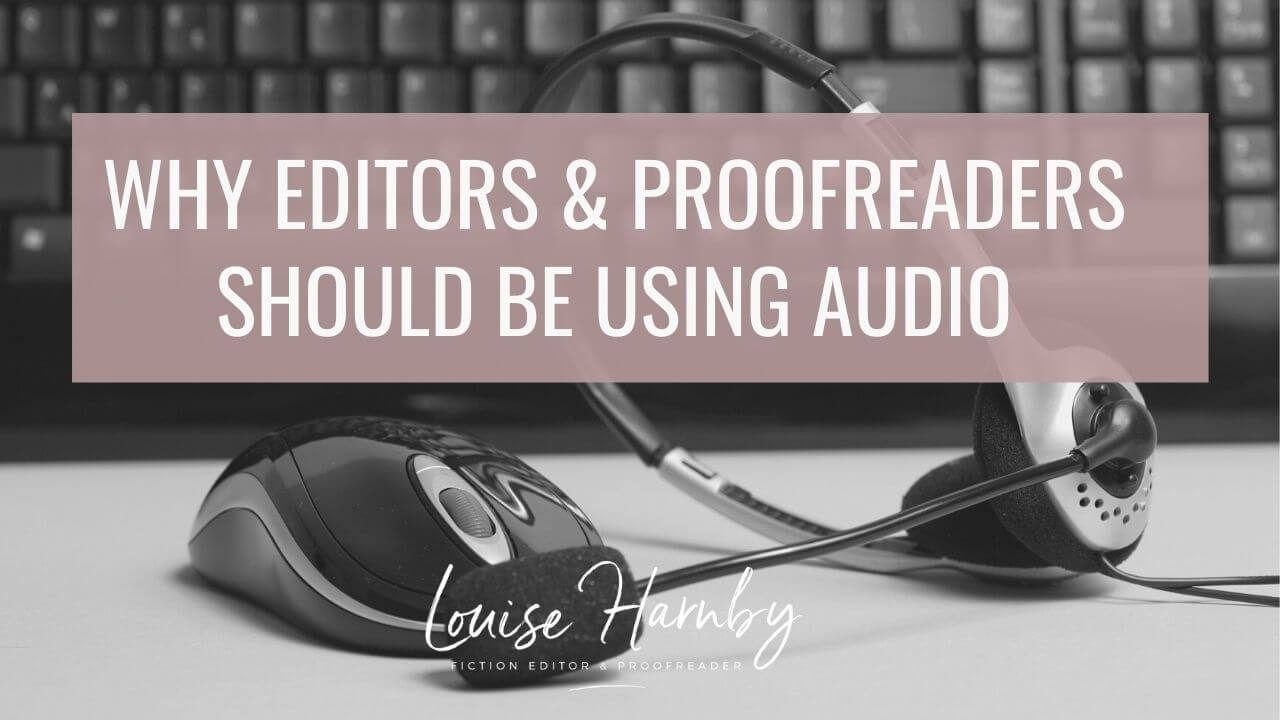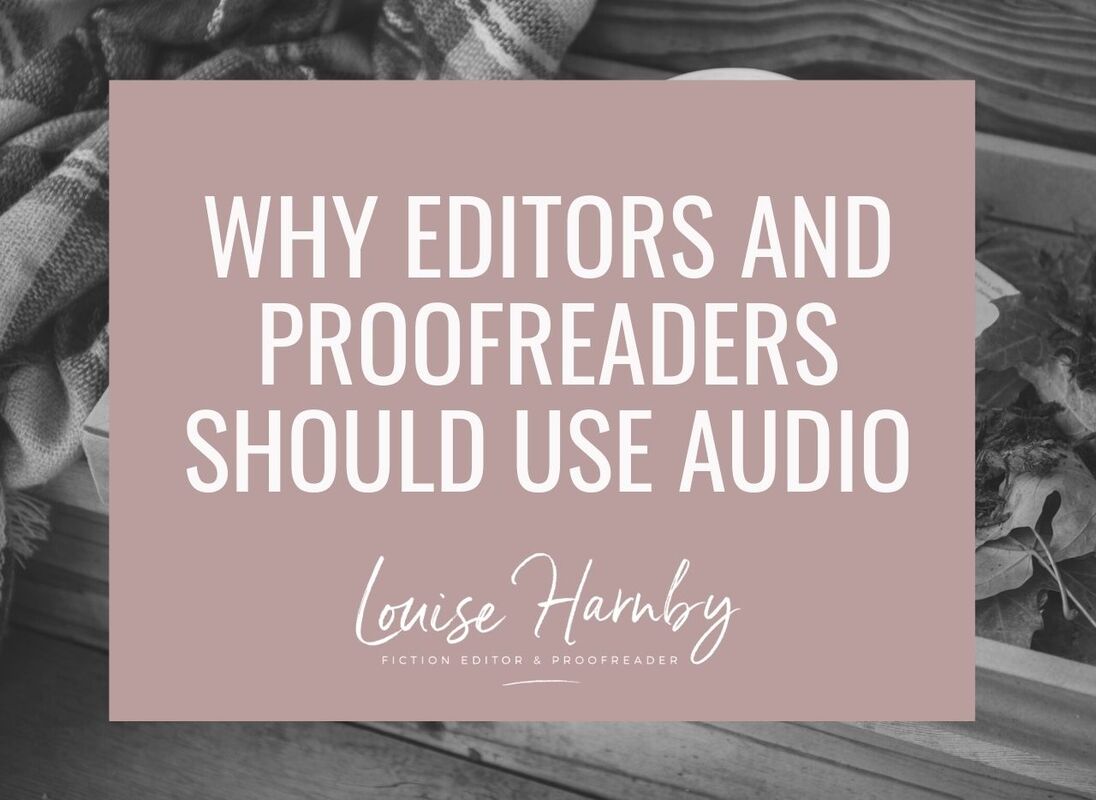- Audio takes up less bandwidth than video. It’s therefore more stable during recording and less likely to buffer during playback.
- Audio files are smaller than video. When hosted natively, they’re less likely to slow down our websites.
- Our voices are unique brand identifiers that give listeners a sense of who we are beyond the words we write and edit.
- Not everyone can see. Audio is therefore another accessibility tool that allows us to communicate with a diverse audience.
- No one will know if we’re creating it in our pyjamas. That makes it a less intimidating option for editors who want to make a personal connection but who fear video.
|
Audio content has never been more popular. Publishers recognize this; so do independent authors. Here’s a list of tips and tools for freelance editors and proofreaders who’d like to introduce audio content into their business workflow and amplify their editorial voices – literally!
5 advantages of audio
Here are my top 5 reasons why I think audio is a superb tool for the editor or proofreader who wants to use audio as a marketing and business tool.
2 pieces of kit
Contrary to what a lot of people think, you don't need a lot of expensive and difficult-to-use kit. Assuming you already have a computer, here's what you'll need to get hold of.
3 ways to record
Recording audio content needn't cost you a single penny. Here are three resources you can use. You might even have two of them already.
3 ways to host
Here are three hosting options to consider. There's something for everyone – whether you want to keep your costs down while you experiment or you want to go full on in to audio content creation.
6 ways editors can use audio
One of the reasons why I love audio is that it's versatile. If marketing makes you nervous, think of how you might use your voice as a business or educational tool. Below are six things you could try.
5 ways to make audio interesting
Here are five ideas to help you add a cherry on your audio cake! None of them will cost you a bean!
Listen up! Audio content is now showing up in search engines. Editors and proofreaders who use it to solve problems and engage with clients and colleagues will increase awareness about themselves and the profession they love.
Fancy learning how to do this step by step? Me and my brilliant podcasting partner Denise Cowle are creating a course that will show you the way. It’s called The Audible Editor. Watch this space! [An earlier version of this post was originally published on The Editors’ Weekly, the official blog of Canada’s national editorial association.] Related marketing and audio resources
Louise Harnby is a line editor, copyeditor and proofreader who specializes in working with crime, mystery, suspense and thriller writers.
She is an Advanced Professional Member of the Chartered Institute of Editing and Proofreading (CIEP), a member of ACES, a Partner Member of The Alliance of Independent Authors (ALLi), and co-hosts The Editing Podcast. Visit her business website at Louise Harnby | Fiction Editor & Proofreader, say hello on Twitter at @LouiseHarnby, connect via Facebook and LinkedIn, and check out her books and courses.
0 Comments
Leave a Reply. |
BLOG ALERTSIf you'd like me to email you when a new blog post is available, sign up for blog alerts!
TESTIMONIALSDare Rogers'Louise uses her expertise to hone a story until it's razor sharp, while still allowing the author’s voice to remain dominant.'Jeff Carson'I wholeheartedly recommend her services ... Just don’t hire her when I need her.'J B Turner'Sincere thanks for a beautiful and elegant piece of work. First class.'Ayshe Gemedzhy'What makes her stand out and shine is her ability to immerse herself in your story.'Salt Publishing'A million thanks – your mark-up is perfect, as always.'CATEGORIES
All
ARCHIVES
July 2024
|
|
|
|


















 RSS Feed
RSS Feed





